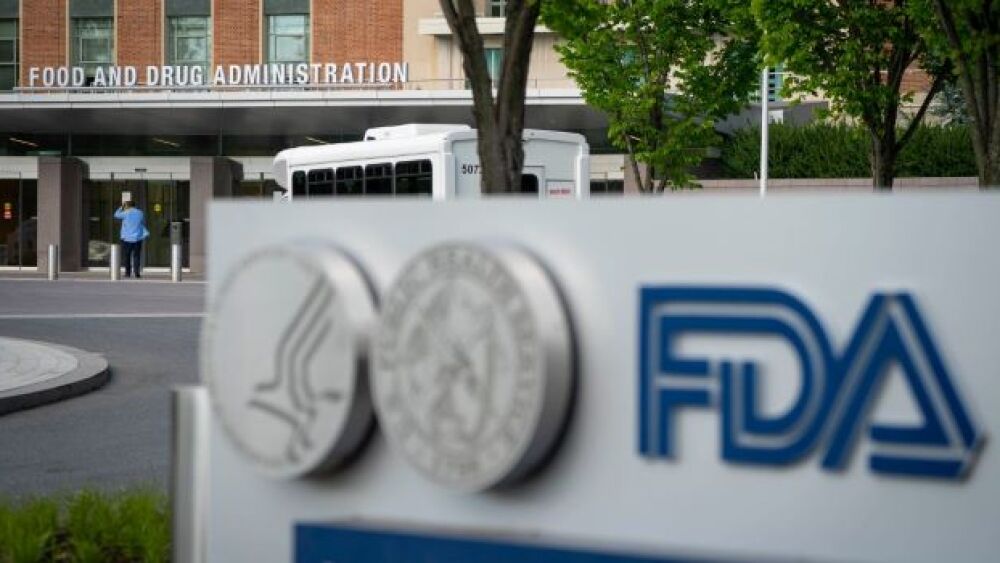This week holds moments of truth for Provention’s type 1 diabetes drug and bluebird bio’s gene therapy for beta-thalassemia. Amicus and Incyte are coming up at the end of the month.
Sarah Silbiger/Getty Images
As summer wraps up, the U.S. Food and Drug Administration has several PDUFA dates on its calendar, many of them rescheduled from three months earlier due to requests for additional information. Here’s a look.
Provention’s Teplizumab for Type 1 Diabetes
Provention Bio had a target action date of Aug. 17 for a Biologics License Application (BLA) for teplizumab for the treatment of type 1 diabetes (T1D). Provention Bio acquired the drug from MacroGenics in 2018. On June 30, Provention announced that the FDA had extended the three-month review period to Nov. 17. The extension was due to updated data on the pharmacokinetic model that was a major amendment and required more time to evaluate.
The drug is a monoclonal antibody designed to interfere with the immune system’s destruction of pancreatic beta cells. On Aug. 8, Kevan Herold, M.D., Yale University and chair of the Teplizumab Prevention Study presented findings demonstrating that the drug delayed T1D a median of two years in children and adults at high risk.
“This is the first study to show any drug can delay type 1 diabetes diagnosis a median of 2 years in people at high risk,” Herold said. “As anyone with type 1 diabetes will tell you, every day you can delay this disease is important.”
There were 76 participants in the trial, with 55 under the age of 18, all with a relative with T1D. All participants had two or more T1D autoantibodies and abnormal blood sugar levels. They were thought to have a lifetime risk of clinical diagnosis of T1D approaching 100%. In the control group, 72% developed clinical diabetes; in the teplizumab group, only 43% developed clinical diabetes, and the development was a median of 48 months compared to 24 months in the control group.
bluebird bio’s Gene Therapy for Beta-Thalassemia
Bluebird bio had a target action date of Aug. 19 for its BLA for betibeglogene auto excel (beti-cel) for beta-thalassemia. It originally had a date three months earlier, but the agency had requested additional material, which required additional time to review.
The BLA is for the therapy for adult, adolescent and pediatric patients with beta-thalassemia across all genotypes who require regular red blood cell transfusions. It is a one-time gene therapy designed to deliver functional copies of a modified form of the beta-globin gene into a patient’s own blood stem cells. Once the patient’s beta-globin gene is modified, they have the potential to produce beti-cel-derived adult hemoglobin at levels that may eliminate the need for transfusions. In Phase II trials, 89% of patients across all ages and genotypes achieved transfusion independence.
On June 10, the FDA’s Cellular, Tissue, and Gene Therapies Advisory Committee voted 13 to 0 in favor of the therapy.
“Despite advances in care, people living with the most severe form of beta-thalassemia still require frequent transfusions of healthy red blood cells to survive, tethering them to the healthcare system for life and increasing their risk for severe complications and early death,” Andrew Obenshain, chief executive officer of bluebird bio, stated at the time.
Amicus’ AT-GAA for Pompe Disease
Amicus Therapeutics has target action dates of Aug. 29 and Oct. 29 for its BLA for cipaglucosidase alfa and the New Drug Application (NDA) for miglustat, respectively.
They are the two components of AT-GAA, a treatment for Pompe disease, an inherited lysosomal disorder caused by deficiency of the enzyme acid alpha-glucosidase (GAA). They originally had dates three months earlier, but the agency requested additional material, pushing the dates back by three months. Specifically, the company also felt it would provide additional time for the completion of the pre-license approval inspections needed at the WuXi biologics manufacturing site in China.
During the company’s second-quarter financial report on Aug. 4, Bradley Campbell, Amicus’ president and CEO, said, “We are focused on gaining regulatory approvals of AT-GAA for people living with Pompe disease around the world. Importantly, we are poised for the anticipated successful launch of AT-GAA and continue to believe in the potential of this treatment regimen to become the new global standard of care in Pompe disease.”
Incyte’s Parsaclisib for Follicular Lymphoma, Marginal Zone Lymphoma and Mantle Cell Lymphoma
Incyte has a target action date of Aug.30 for its NDA for parsaclisib for the treatment of patients with relapsed or refractory follicular lymphoma (FL), marginal zone lymphoma (MZL) and mantle cell lymphoma (MCL).
The application was based on data from several Phase II trials, CITADEL-203, 204 and -205. The drug was generally well-tolerated with a manageable safety profile. Confirmatory Phase III trials are in preparation for all three indications.
Parsaclisib is a potent, highly selective, next-generation oral inhibitor of phosphatidylinositol 3-kinase delta. It has been tested as a monotherapy for the three forms of lymphoma and autoimmune hemolytic anemia. Trials of the drug in combination with the company’s Jakafi (ruxolitinib) are ongoing for patients with myelofibrosis, and the company plans to evaluate the drug in combination with its Monjuvi (tafasitamab) in B-cell malignancies.





